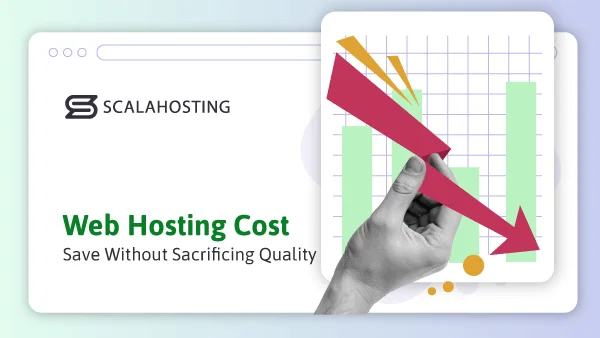Imagine you’re cruising through the vast expanse of the internet, navigating the digital highways with seamless ease. But have you ever paused to consider the powerhouse behind your online journey? Enter Managed VPS Hosting – the unsung hero of the virtual realm.
As we stand on the precipice of 2025, the landscape of Managed VPS Hosting is undergoing a metamorphosis. With technology hurtling forward at breakneck speed, it’s high time we peer into the horizon of what’s to come.
But before we embark on this journey, let’s take a moment to unravel the essence of Managed VPS Hosting. Picture it as your personal slice of cyber real estate, nestled within a server bustling with activity. But unlike its shared hosting counterpart, Managed VPS Hosting offers the luxury of dedicated resources, granting you unparalleled control and performance.
Now, fasten your seatbelt as we delve into the riveting world of future trends in Managed VPS Hosting. From cutting-edge innovations to seismic shifts in user behavior, we are in for a ride of unprecedented transformation. So, what exactly can we expect from the VPS industry, and how to navigate through the maze of advancements and revelations, unlocking the secrets that lie beyond the binary code?
Introduction to Managed VPS Hosting
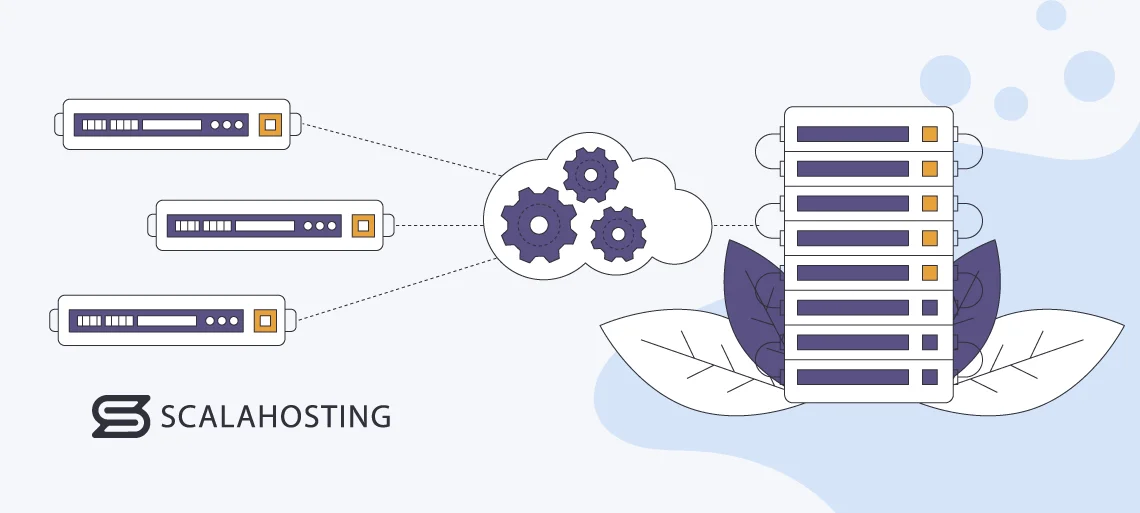
Managed VPS Hosting occupies a vital niche in the web hosting industry, offering users a balance of performance, security, and support. Acting as a virtual slice of dedicated server space within a larger server environment, this type of service grants exclusive access to resources, enabling greater customization and control over the hosting environment.
The significance of managed offerings within the realm of VPS hosting cannot be overstated. These services go beyond mere server provision, encompassing performance optimization, security fortification, and round-the-clock support. Performance optimization ensures that websites and applications hosted on VPS plans maintain peak performance, even during times of high traffic. Security measures, including regular audits and proactive threat detection, safeguard digital assets against potential breaches and vulnerabilities. Meanwhile, dedicated support teams stand ready to assist users with any technical issues or inquiries, ensuring a seamless hosting experience.
In summary, Managed VPS Hosting offers clients the best of both worlds – dedicated resources coupled with expert management. This winning combination helps businesses and individuals establish and maintain a formidable online presence, free from the worries of performance bottlenecks, security threats, or technical glitches.
Managed VPS Hosting Trends

Let’s now get to the nitty-gritty – a closer look at some of the most exciting technologies and industry trends that promise to rock the future of web hosting.
Emergence of Containerization Technologies
The emergence of containerization technologies has revolutionized the landscape of managed VPS hosting, introducing unprecedented levels of scalability, flexibility, and efficiency. Spearheaded by platforms like Docker and Kubernetes, containerization has swiftly gained traction among businesses seeking streamlined deployment and management solutions for their applications within virtual server environments.
With containerization, applications are encapsulated into lightweight, portable containers, each incorporating everything needed to run independently. This approach enables seamless migration of applications across various environments, ensuring consistency and reliability.
Moreover, container orchestration tools like Kubernetes facilitate automated deployment, scaling, and app management, allowing for dynamic resource allocation and optimization within a VPS hosting environment. As a result, businesses can enjoy limitless scalability, flexibility, and efficiency in deploying and managing web applications.
Focus on Automation and Orchestration
The cloud VPS hosting industry is ever-evolving, no doubt about that. That’s why automating tasks becomes increasingly prevalent in the quest to optimize the workflow of providers and clients alike. Tools like Ansible, Terraform, and Puppet have become indispensable assets for that purpose, making time-consuming processes a lot more efficient.
Ansible offers an agentless architecture, helping administrators automate server provisioning, configuration management, and application deployment across multiple servers. Its simplicity and versatility make it a preferred choice for many cloud hosting providers.
Terraform, on the other hand, takes infrastructure automation to another level by enabling infrastructure as code. With this tool, you can manage cloud resources through configuration files. This approach allows you to increase scalability and reduce the risk of config issues.
The same goes for Puppet. This is a set of tools that automates server configuration with predefined specifications. Puppet defines system states and enforces them across the distributed infrastructure, removing the need for manual configuration and transforming the landscape of cloud VPS hosting. Your organization will be able to operate more efficiently, scale according to your needs, and adapt to the quickly changing client demands.
Enhanced Security Measures
Getting popular online is a double-edged sword – on the one hand, you will enjoy traffic and sales growth, but on the other, that means attracting more unwanted attention. Cybercriminals are getting more inventive by the day, so the cloud VPS industry has to constantly figure out ways to defend its clients.
Luckily, reliable hosting providers are not just standing out unprotected, with hands in their pockets. Some of their weapons include:
- Multi-factor authentication (MFA) – weak passwords are one of the most common ways hackers are able to breach any account. Even though that has been true for many years, millions of people still neglect the fact and leave their online premises wide open. Having multiple forms of authentication does wonders in that aspect – even if someone manages to break your password, they would need physical access to your other device(s) to get into the account. This can be a code sent to your phone, email, or authenticator app.
- Zero-trust architecture – the leading principle here is “never trust – always verify.” Simply put, access from each new user and device has to be verified before accessing resources on your network. This approach minimizes the risk of lateral movement by adversaries within the network.
- Threat detection tools – why think of ways to fix incoming issues instead of preventing them altogether? Hosting providers that are led by this principle offer various methods to recognize suspicious behavior. For example, ScalaHosting has developed SShield – an AI-powered tool that employs machine learning to detect online threats and prevent them from hitting the server and user accounts. This way, more than 99.98% of incoming attacks are dealt with preemptively.
As the cybersecurity landscape continues to evolve, investing in these advanced security measures becomes imperative for managed VPS hosting providers to protect their infrastructure and their customer accounts.
Integration of Artificial Intelligence (AI) and Machine Learning (ML)
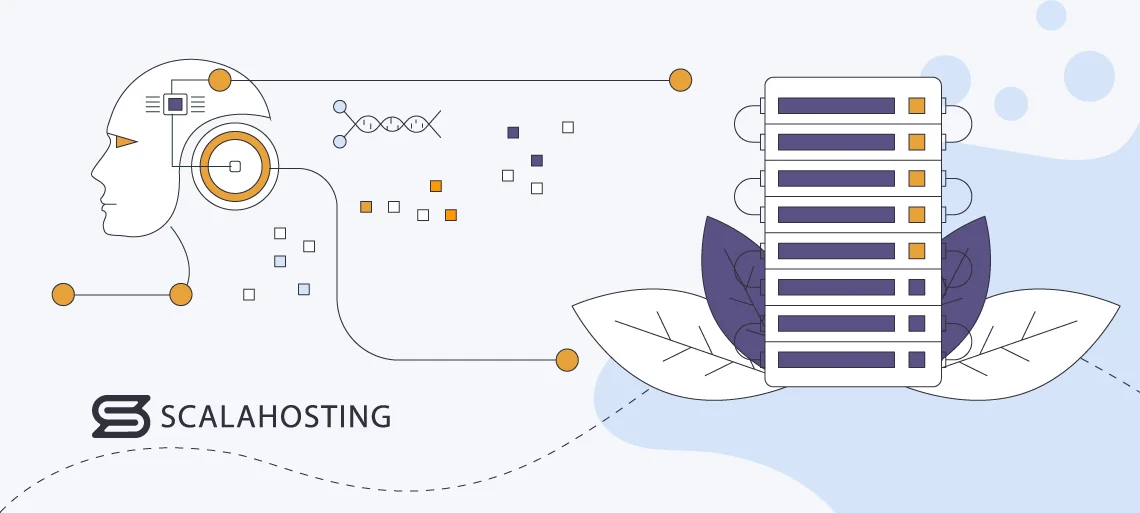
The integration of artificial intelligence (AI) and machine learning (ML) technologies in managed VPS hosting has ushered in a new era of predictive analytics, anomaly detection, and proactive maintenance. By analyzing vast amounts of data generated from server logs, network traffic, and system metrics, AI-driven algorithms can identify patterns and trends that indicate potential issues or vulnerabilities before they escalate into critical problems. By doing so, VPS providers can predict resource demands and address bottlenecks, ensuring smooth operation for all users.
Artificial intelligence and machine learning also help with scheduling maintenance tasks. You can outline periods of low demand and set up essential maintenance during particular times that will guarantee no downtimes and service interruptions. You can also address software and hardware failures, improving system reliability and client satisfaction.
Whatever the purpose, AI tools are here to stay, and it’s the hosting provider’s responsibility to figure out how to best integrate them into their product offerings.
Focus on Sustainability and Green Hosting
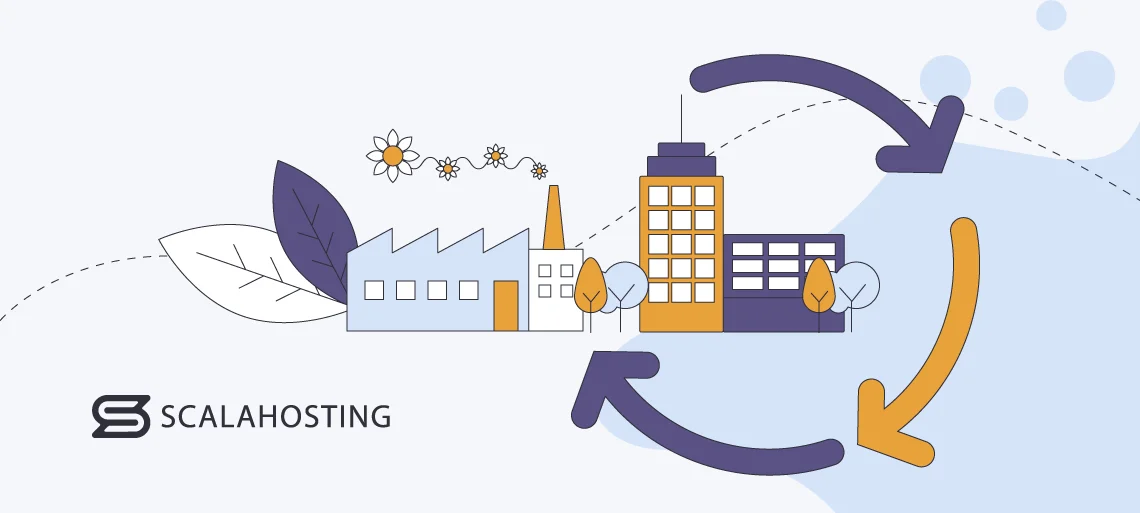
Environmental responsibility is not a new trend, but many providers still need help finding efficient ways to address it. Web servers still consume massive amounts of electricity, and clients demanding eco-conscious approaches to the business would surely weed out the ones making the least effort.
So, what can you do?
For starters, optimizing resources and energy consumption is a must if you are aiming to reduce your carbon footprint. Many hosts are looking for renewable energy initiatives where they can partially (or fully) restore the vast amounts of energy their servers and data centers are consuming. This includes utilizing technologies such as virtualization and server consolidation to maximize the efficiency of hardware resources.
Additionally, managed VPS providers are implementing advanced cooling systems and innovative techniques, such as free cooling and liquid cooling. There are even massive projects for data centers in Iceland and other naturally cold countries with space for technological expansion.
Let’s not forget the dynamic resource allocation mechanisms and load balancers. They help providers utilize the right amount of CPU and RAM and avoid unnecessary waste and energy consumption.
At the end of the day, many hosts have Green Hosting as part of their portfolio. But before you jump to such a plan, make sure to gain more information on WHAT exactly that term encompasses for them. Sadly, there are still far too many providers that use this as a marketing buzzword instead of actually making an effort to tackle e-waste.
Edge Computing and Distributed VPS Hosting
Edge computing and distributed VPS hosting are two other exciting technological prospects that are changing the way we look at computer resource provisioning. Centralized data centers will always suffer from the fact that users far from the facility will suffer from lowered performance, and these methods tackle just that.
Utilizing edge computing, you are able to bring resources from the entire network and deliver them from a location as close as possible to the end user. Although there are many similarities with cloud technology, you are practically building your own network instead of using an existing one.
While this means more upfront investments, edge computing allows you to process data locally, bringing less latency and bandwidth consumption than its cloud counterpart. This is vital for projects that require real-time processing.
Distributed VPS networks pair up perfectly with edge technology.
This concept allows you to build your own network of virtual private servers across different data centers. Knowing your audience is very beneficial in that matter, as it helps you outline the best possible range of edge locations. It’s a decentralized approach, which ensures your computer resources are properly distributed geographically for the lowest possible latency. Real-time analytics, IoT services, and CDN solutions are all types of projects that benefit greatly from such VPS networks.
Both methods can do wonders in terms of resource scalability and present a wonderful opportunity to serve clients at opposing ends of the globe.
Hybrid and Multi-Cloud Deployments
Online projects can sometimes leverage the services of multiple cloud providers with on-premise infrastructure. The idea is to achieve maximized performance and cost-effectiveness while serving clients from all over the world.
Hybrid and multi-cloud deployments take the best out of both worlds – the scalability of the public cloud combined with the enhanced security of on-premise setups. By adopting one of those models, users can guarantee the much-needed flexibility and redundancy that will help them avoid downtimes and service interruptions.
Imagine a scenario where there is an unforeseen server outage in your primary data center. Having no Plan B means you would have to rely on your hosting provider to fix the issue in the fastest possible time. Even then, you are facing possible downtimes, which can have devastating effects on your business.
Working with more than a single data center takes care of that risk.
Hybrid and multi-cloud services are also indispensable when it comes to spreading the workload of your project. Instead of putting the load on a single server or facility, you have an entire network ready to take on incoming requests.
These trends are not “new” in any way but appeared too costly for a long time. Still, technological evolution allows hosting providers to provide such services in an increasingly cost-effective way, bringing them closer and closer to worldwide adoption not only by large enterprises but by smaller projects as well.
Customization and Personalization
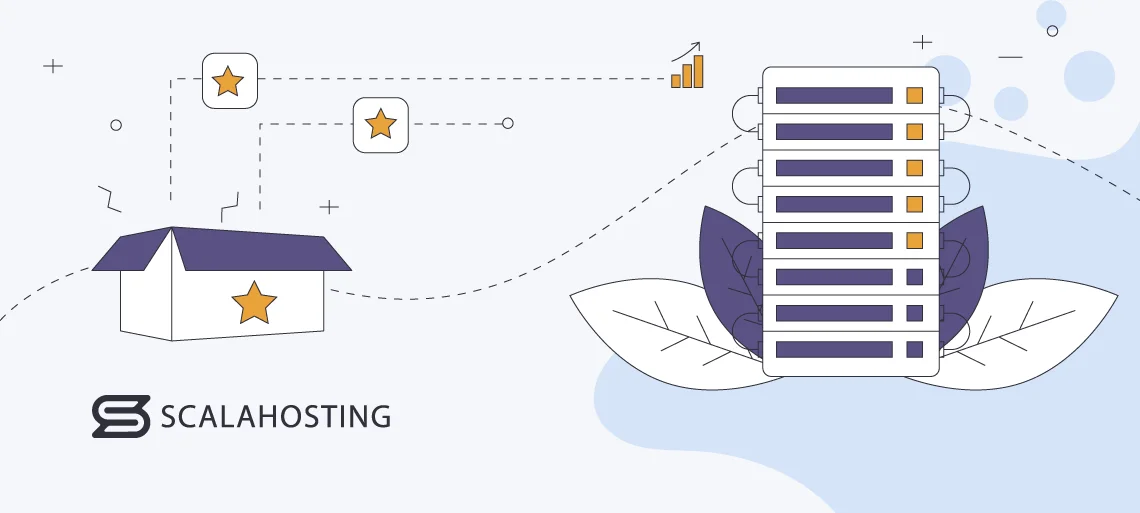
Gone are the days when choosing a hosting provider involved going strictly for one of their fixed plans. Clients are looking for limitless customization, and constantly having to upgrade your account involves needless efforts. This rings especially true when we talk about VPS services where flexibility and scalability are two of the best selling points.
Apps and websites grow exponentially, system requirements often undergo many changes, and one-size-fits-all types of plans become obsolete in such a dynamic environment.
So, what can you do?
Look for a hosting provider that takes customization and personalization seriously, not just for building a website but for the underlying infrastructure as well. At ScalaHosting, we have recognized those needs and offer a completely tailor-made experience for VPS clients. Instead of going for a fixed plan, you can practically build your own server – from the CPU/RAM capacity, through the operating system, all the way to your control panel and software technology stack. Transparent pricing is a must-have in customizable services so users can easily see how each element affects their hosting bill.
No more unexpected bills or sudden downtimes due to lack of resources – customizable managed VPS accounts are a long-term solution that is here to stay.
Conclusion
In exploring the future trends of Managed VPS Hosting, we’ve uncovered a landscape ripe with innovation and potential. From the rise of containerization and serverless architecture to the growing emphasis on AI-driven automation and edge computing, the horizon of Managed VPS Hosting is teeming with exciting possibilities.
As the digital realm continues to evolve at breakneck speed, staying informed about emerging trends and technologies in Managed Virtual Private Servers is paramount. By remaining vigilant and adaptable, users can make informed decisions to effectively meet their web hosting needs.
So, whether you’re a seasoned developer, an aspiring entrepreneur, or a small business owner, remember: the journey of discovery in Managed VPS Hosting is just beginning. Stay curious, stay informed, and embrace the transformative power of technology in shaping the future of online presence with the right host.
FAQ
Q: What are some emerging trends in managed VPS hosting that businesses should watch out for?
A: One notable trend is the adoption of containerization technology, allowing for more efficient resource allocation and scalability. Additionally, the integration of AI-driven automation promises to streamline management tasks and enhance performance. Lastly, the rise of edge computing enables faster processing and reduced latency, catering to the growing demand for real-time data processing.
Q: How can businesses prepare for the future in managed VPS hosting?
A: Keeping in line with industry developments through continuous learning and research is crucial. Investing in flexible web hosting solutions that support emerging technologies like containerization and edge computing ensures readiness for future demands. Moreover, partnering with reliable providers offering scalable and adaptable services can give businesses the agility to navigate a dynamic and ever-changing environment.
Q: Are there any potential challenges associated with adopting future trends in managed VPS hosting?
A: While the benefits of embracing new technologies are substantial, businesses may encounter challenges such as integration complexities and security concerns. Implementing containerization, for instance, requires careful planning to ensure compatibility with existing systems.
Moreover, with the proliferation of connected devices in edge computing, cybersecurity becomes a paramount consideration to safeguard data integrity and privacy. Businesses should approach the adoption of future trends in managed VPS hosting with a strategic mindset and a focus on mitigating potential risks.
